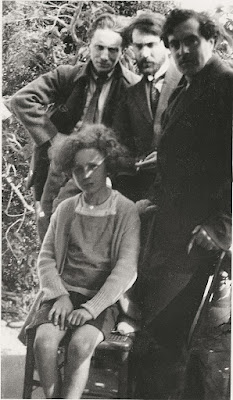LIBERTY BY GLYN MAXWELL
Liberty by Glyn Maxwell, dir Guy Retallack at The Globe Theatre, London
So just time for my yearly visit to The Globe Theatre, London. The Globe Theatre is more a museum than a theatre and all the events staged there have a self-consciously staged or 'theatrical' feel. I wouldn't describe this is real theatre but something between tourism and a museum visit. One spends at least 50% of ones time soaking up the atmosphere, the ambience and that's great of course. Therefore Glyn Maxwell's play 'Liberty' has certain limitations imposed by the self-consciousness of The Globe Theatre project, ie this is a really ancient and very beautiful theatre and part of history ITSELF. Its unsurprising then that The Globe Theatre chooses historical subjects to supplement its Shakespearian efforts. 'Liberty' deals with the French Revolution, the politics and ideological struggles rather than the actual events or personalities. Because of that it has a strongly abstract quality, with perhaps a Brechtian inflection in the signposting of logos and banners indicating temporal and ideological shifts. Basically this is the story of Gamelin a barrister who initially abhors the excesses of the revolution, then embraces it, reversing the stereotypical shift of many, including the poet William Wordsworth, for instance, who witnessed and welcomed the revolution then became an entrenched reactionary later on after becoming poet laureate. The play didn't essentially bring across the drama, poignancy and pain of the revolution but left one with a sense that something had been presented but was left essentially undeveloped. There was no sense in which the feeling and intensity of momentous events unfolding, the drama essentially left this viewer cold. I thought Glyn Maxwell would be better going back to study a drama that gives full vent to all of the main arguments and disagreements about the revolution and is a superb drama, Georg Buchner's 'Danton's Tod', especially Saint Just's great speech in that play, summarising the view that bloodshed is necessary in the great cause of progress. Otherwise this play seemed to lack any real energy or vitality but really needed some and had so many of the correct elements in place such as the good acting, costume design, set design and so on that it was really a great pity that the drama was so lacking in real intellectual thrust and positive blackness.
Paul Murphy, Globe Theatre, London
So just time for my yearly visit to The Globe Theatre, London. The Globe Theatre is more a museum than a theatre and all the events staged there have a self-consciously staged or 'theatrical' feel. I wouldn't describe this is real theatre but something between tourism and a museum visit. One spends at least 50% of ones time soaking up the atmosphere, the ambience and that's great of course. Therefore Glyn Maxwell's play 'Liberty' has certain limitations imposed by the self-consciousness of The Globe Theatre project, ie this is a really ancient and very beautiful theatre and part of history ITSELF. Its unsurprising then that The Globe Theatre chooses historical subjects to supplement its Shakespearian efforts. 'Liberty' deals with the French Revolution, the politics and ideological struggles rather than the actual events or personalities. Because of that it has a strongly abstract quality, with perhaps a Brechtian inflection in the signposting of logos and banners indicating temporal and ideological shifts. Basically this is the story of Gamelin a barrister who initially abhors the excesses of the revolution, then embraces it, reversing the stereotypical shift of many, including the poet William Wordsworth, for instance, who witnessed and welcomed the revolution then became an entrenched reactionary later on after becoming poet laureate. The play didn't essentially bring across the drama, poignancy and pain of the revolution but left one with a sense that something had been presented but was left essentially undeveloped. There was no sense in which the feeling and intensity of momentous events unfolding, the drama essentially left this viewer cold. I thought Glyn Maxwell would be better going back to study a drama that gives full vent to all of the main arguments and disagreements about the revolution and is a superb drama, Georg Buchner's 'Danton's Tod', especially Saint Just's great speech in that play, summarising the view that bloodshed is necessary in the great cause of progress. Otherwise this play seemed to lack any real energy or vitality but really needed some and had so many of the correct elements in place such as the good acting, costume design, set design and so on that it was really a great pity that the drama was so lacking in real intellectual thrust and positive blackness.
Paul Murphy, Globe Theatre, London

Comments